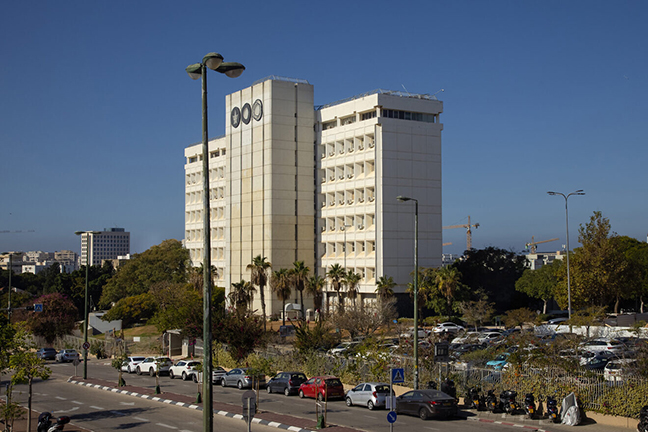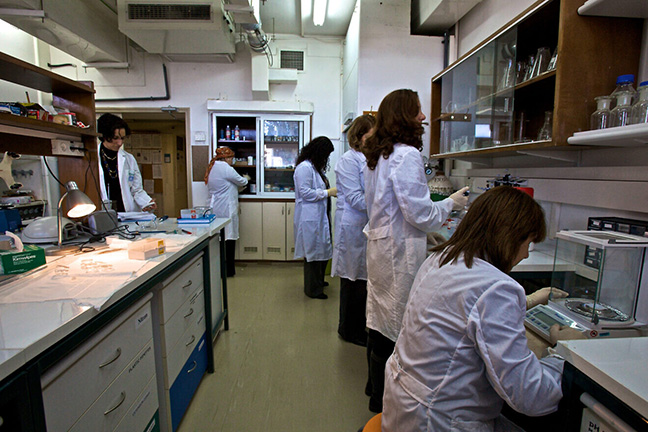Israeli researchers discover mechanism to eliminate tumors

Tel Aviv University’s Ramat Aviv campus, Dec. 16, 2022. Photo by Moshe Shai/Flash90.
(JNS) — Israeli researchers have stumbled on a way to stimulate the immune system to fight cancer cells, including in types of the disease considered resistant to prevailing forms of immunotherapy, Tel Aviv University announced on Oct. 30.
The “chance technological breakthrough” by the university’s Faculty of Medical & Health Sciences essentially reverses a mechanism in cancer patients that prevents the immune system from attacking tumors, the university said.
The academic lab that made the discovery studies both cancer and the effects of ultraviolet radiation from the sun on the skin and body, both of which are known to suppress the immune system.
“While in most cases, we cancer researchers worldwide focus on the tumor and look for mechanisms by which cancer inhibits the immune system, here we proposed a different approach: investigating how UV exposure suppresses the immune system and applying our findings to cancer,” said TAU Prof. Carmit Levy, one of the leaders in the study.
“The discovery of a mechanism that inhibits the immune system opens new paths for innovative therapies,” she said.
The researchers found that after exposure to UV radiation, the immune system’s T cells — that play a critical role in fighting cancer — begin to express high levels of the protein Ly6a, said PhD student Avishai Maliah.
“We suspected that Ly6a serves as a brake through which UV inhibits the immune system, and that by releasing this brake, optimal activation of the immune system might be resumed,” he added.
He treated cancer in the lab with Ly6a antibodies, and the tumors were significantly reduced. Moreover, cancers resistant to known treatments reacted substantially to Ly6a antibodies.
“Immunotherapy has revolutionized the treatment of cancer,” noted TAU Prof. Yaron Carmi, a global expert on the immune system and co-author of the study. “However, about 50 percent of the patients do not respond to the currently prevailing treatment.”
The Israeli team is now working to translate their findings into a drug for cancer patients, hoping to offer an effective new treatment.
The research has been published in the peer-reviewed Nature Communications journal.



